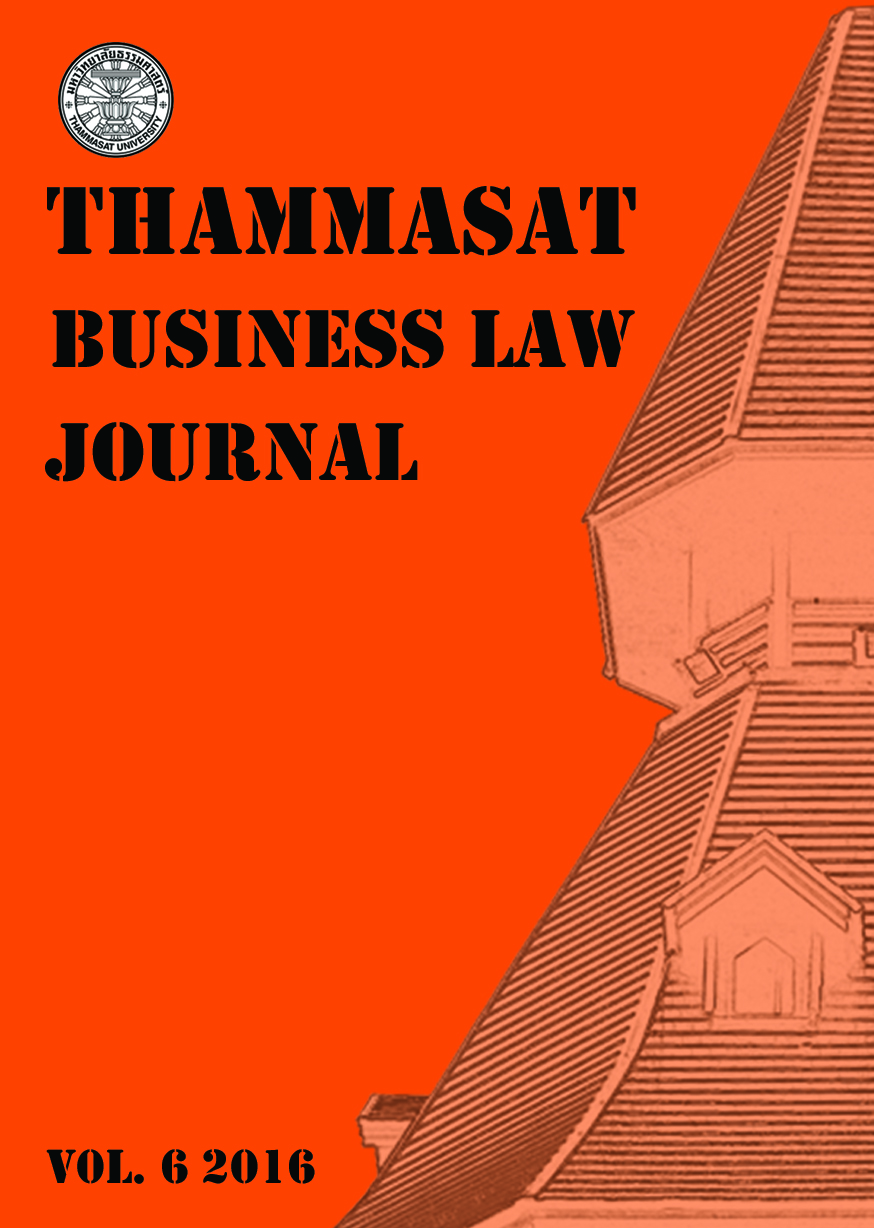PROBLEMS OF TAX INCENTIVE ON RESEARCH AND TECHNOLOGY DEVELOPMENT: COMPARISON WITH MALAYSIA AND SINGAPORE
Main Article Content
Abstract
We cannot refuse that the growth of this current world is based on technology and innovation. Governments in many countries use different measures for stimulating Research and Development (R&D) activities among private entities. One of the most effective measures used is granting tax incentives. Since other countries are searching for the way to add value to its product and service by improving technology and innovation, Thailand cannot avoid going through the same path with those countries. In Thailand, there are some measures that have been enforced to promote R&D, such as the exemption of income equal to the amount spent for R&D activities under Royal Decree issued under the Revenue Code regarding reduction and exemption from revenue taxes (No. 297) B.E. 2539 (The Royal Decree No.297). Under this measure, companies can spend money on hiring a registered R&D service provider to conduct R&D on their behalf in order to qualify for the exemption. In practice, if a company or R&D Unit would like to become a R&D service provider, they have to file an application to Ministry of Finance (MOF) through the Revenue Department. If a company hires the approved R&D service provider, they will be entitled to the exemption, while those registered R&D service provider will only gain more business.
Since the R&D tax incentive program was implemented in Thailand in 1996, there are questions concerning proper implementation of this measure, and whether or not the Thai R&D tax incentive scheme really stimulates R&D investment in the country. Questions also arise whether the 200 per cent of tax allowance was enough to effectively encourage private sectors to invest in R&D. Even though Thailand has recently enacted the Royal Decree issued under the Revenue Code regarding reduction and exemption from revenue taxes (No. 598) B.E. 2559 (The Royal Decree No.598) for the expenditures paid on research and development of technology and innovation in February 2016, considerations must still be taken on the appropriateness of this Royal Decree towards the promotion of R&D, and whether such new tax scheme would encourage private entities to invest in R&D. It is also important to consider whether such investment would be sufficient to solve the current R&D issues in Thailand.
This thesis aims to expand on the understanding of Thailand’s current R&D tax policy, compared to other counties, as well as providing recommendations on how to promote R&D activities or R&D investments in the private sector more effectively.Tax Incentive
Article Details
References
ACCA, “Tax incentives for Malaysia as a regional hub and for research and Development”, SA Technical, 2011
OECD (2015), “Frascati Manual 2015: Guidelines for Collecting and Reporting Data on Research and Experimental Development”, The Measurement of Scientific, Technological and Innovation Activities, OECD Publishing, Paris, 2015
OECD (2002), “Frascati Manual 2002: Proposed Standard Practice for Surveys on Research and Experimental Development‖”, the measurement of scientific and technological activities, OECD Publications, 31, 6th edition, 2002
OECD, “Tax Inventive for research and Development Trend And Issues”, Science Technology Industry.
Budget 2010 Key Budget Initiatives, “Raising Productivity: Skills, Innovation And Economic Restructuring”,
EY Global Tax Alert, Thailand Approves increased tax incentive for research and development expenses.
IRAS e-Tax Guide, “Research and Development Tax Measures (Fourth edition)
World Bank, “World Development Indicators”,
ผู้จัดการออนไลน์, “ก.วิทย์ฯ เดินหน้ามาตรการเว้นภาษี 300% เป้าเพิ่มสัดส่วนทุนวิจัย”, ข่าว SME, 25 มีนาคม 2559 (MGR Online, “Ministry of Science proceeds with 300% tax exemption aiming to increase investment in research”, SME News, March 25, 2016),
สำนักงานพัฒนาวิทยาศาสตร์และเทคโนโลยีแห่งชาติ, “การขอรับรองโครงการวิจัยและพัฒนาเทคโนโลยีเพื่อขอยกเว้นภาษีเงินได้นิติบุคคลสำหรับรายจ่ายที่ได้จ่ายไปเพื่อทำการวิจัยและพัฒนาเทคโนโลยี (National Science and Technology Development Agency, “R&D Project Approval for Income Tax exemption for expenses paid out as R&D expenditures),
สมเกียรติ ตั้งกิจวานิชย์. สัมภาษณ์โดยณัฏฐา โกมลวาทิน,รายการคิดยกกำลังสอง, ไทยพีบีเอส, 23 สิงหาคม 2556 (Somkiat Tangkitvanich, Interview by Nattha Komolvadhin, Kid yok kum lung 2, the Thai PBS, August 23, 2013)


